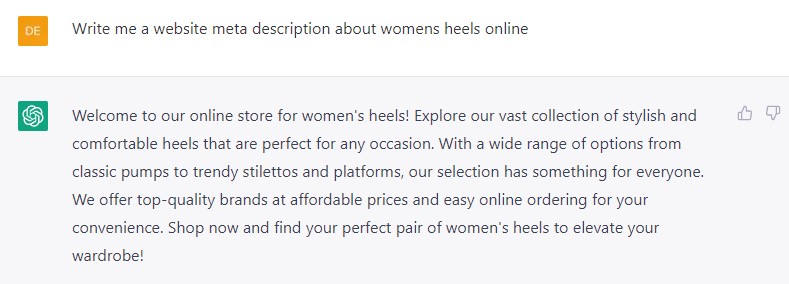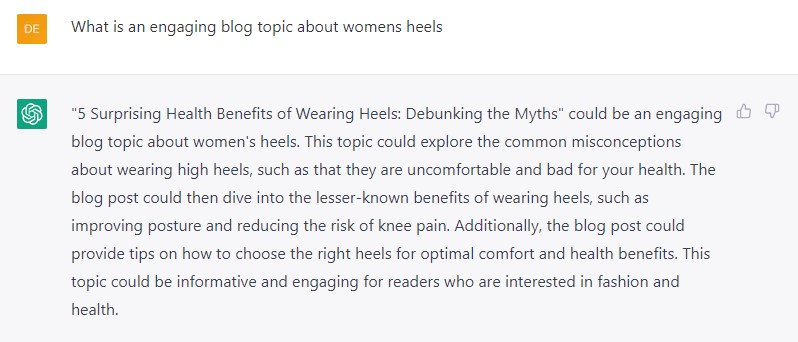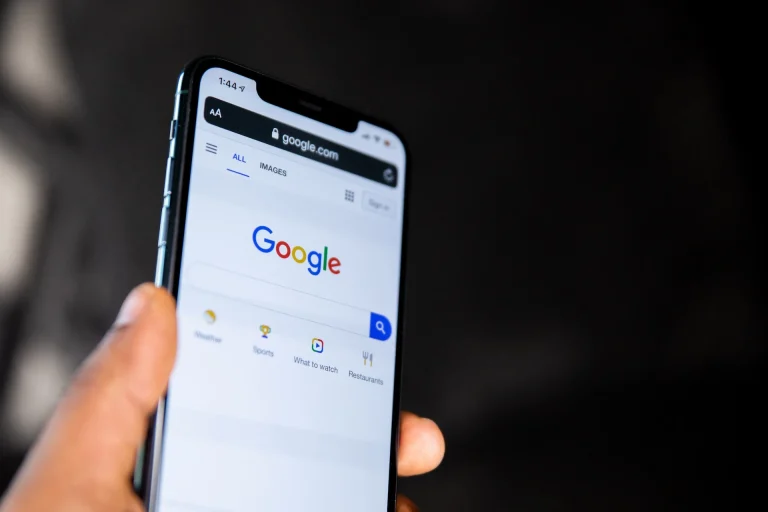The mass hysteria surrounding ChatGPT seemed to appear overnight. One day, millions of accountants, administrators, copywriters, graphic designers, web design experts, research analysts and other professionals were airily completing their daily tasks when, boom, someone burst through the door spruiking the AI bot’s work potential like they were a new visionary executive!
It’s enough to make the skill-limited quiver in bed and wonder, “where to next, exactly, when this revolutionary, hyper-evil technology takes my job and perhaps murders me in the process?” With the stuff we have been seeing the past few years, I guess anything is possible!
After all, it quickly became the fastest-growing platform in history, picking up a gigantic one million users within five days of its launch, and each one of these users was there to essentially generate high-quality content for fun and work purposes.
The fact remains that when used correctly, ChatGPT can work wonderfully for your SEO campaign. It should come as no surprise, conversely, that when used incorrectly, it can be like a toxin that takes time and effort to expel from your business’s digital body.
When used properly, it can amplify your SEO campaign and content strategy with its high-powered work-processing capabilities. However, when used as a be-all and end-all solution, it can put you right in the Google doghouse, somewhere very hard to drag your way out of once they’ve shafted you in with all their omniscient power.
It was inevitable that an industry like digital marketing – which relies on technology to operate AI – would come to the party and shake things up a bit.
So, how can you or your SEO company use ChatGPT to safely optimise your SEO campaign? What can you do to ensure that Google doesn’t pull you up and say, “hey there, buddy, we can see you’ve used nothing but a competing bot to create your campaign – we’re not only going to not reward you for this, but we’re also going to penalise you accordingly!
Let’s find out below:
ChatGPT can help you generate more accurate content
Oh, we love the old Google search query, we really do, but in this rapid-paced digital world there is always room for improvement: enter ChatGPT. The chat-based Generative Pretrained Transformer (GPT) has the ability to process natural language to generate more accurate information regarding a topic.
It was not long ago where content creators and SEO’s were still relying on scrambling through Google’s search engines looking for tidbits of information to compile and put towards their creative content.
Now, all they have to do is make a request to ChatGPT, and the technology will provide a comprehensive answer regarding that exact query – no scrolling around Google and perusing inaccurate web pages from 10 years ago to gather content information. Some of the basic things ChatGPT can assist with when it comes to SEO are as follows (do not copy):
Meta description assistance
The below example by ChatGPT is actually incorrect as it exceeds the recommended character limit for a website page meta description
Blog topics
ChatGPT helped providing a great blog topic name as well as ideas for what the write about.
Meta title ideas
We wouldn’t recommend copying ChatGPT meta titles especially without doing keyword research for what you want to promote
Landing Page Content Ideas – Do not copy and paste, it is just to be used for an idea of what to write about.
What’s more, the technology is also making it easier to produce onsite SEO, blog posts, social media content and more, as the chatbot can provide users with human-like responses that contain engaging content that can then be creatively rehashed for SEO purposes.
ChatGPT can also help you get penalised on Google
Notice how we mentioned not to copy? If it is too good to be true, it probably is. The last thing you want to do is completely substitute your own creative endeavours for that of what ChatGPT can create for you. Unfortunately, for the lazy and the cheap (or both), using this technology solely to produce your content is a very good way to see your website rankings drop like a sack of potatoes – something we will touch on further. Google can detect AI generated content, and if content creators are too lazy to create their own content, then Google want’s nothing to do with them on their search engine result pages. Towards the end of 2022 there was a Google update that looked at content and many websites that had notable assistance from AI software got hit hard!
Below is an example of one customer who came to us after this update. The used an AI content generator to create a lot of new content and they enjoyed two months of increased rankings, then Google caught on and lost the past two years’ worth of ranking results. After we went through all their website page-by-page and optimised their content their rankings are better than ever!
So, one of the key benefits, and the main benefit for helping your SEO campaign, is the way in which ChatGPT can cut directly to the source, providing you with real-time information regarding your topic, something from which you can take the ideas to put into your own content (and we mean your own content).
It is tempting to let ChatGPT handle all your content, but it isn’t worth it!
It all does sound lovely, doesn’t it? The ability to find exactly what you need when you need it to make stellar content is a true 21st Century marvel that will only continue to improve with time.
However, one must beware of the tempting trappings of automated content. And why? Because Google is very advanced, and it’s not here to reward business owners taking the easy road and flooding their platform with AI-generated content.
With the advent of ChatGPT, there has been renewed debate about what frameworks will have to be implemented to ensure humans can work alongside AI to simplify unwanted tasks and not actually phase out the need for human workers.
Although still in its infancy, ChatGPT was responsible for a massive influx of digital content in late-2022 (as mentioned above), the likes of which business owners simply copied and pasted from the bot to their websites, blog posts, social media etc.
So, Google doesn’t take kindly to users attempting to flood their websites with content generated by the (rival) AI technology. Although it has lifted its prerogative of automatically defining AI-generated content as spam, it must meet its newly refined guidelines entitled E-E-A-T, with the acronym meaning the following:
E: Experience – How much worldly experience has the author gathered in their lifetime working with this product?
E: Expertise – How much skill or expertise do they have with this product? Google believes that if someone has a high level of expertise then they should be able to share it in a unique way.
A: Authoritativeness – Does the author already have the reputation to share such informative content about the subject? This is where the difference between people who have been working on their sites for years with human-generated content and those who have just opened their webpage with AI-generated content comes into play.
T: Trustworthiness – Is the page safe and reliable? Does the business owner have the credibility to show that, yes, they are a real business owner and not someone generating AI-content at lightspeed to con the consumer?
Speaking of safety: At the time of writing (05/04/2023), Italy has become the first country to officially ban ChatGPT, citing a suspected breach of European privacy regulations as users were able to view the titles of conversations other users were having with the GPT.
ChatGPT can help your content and SEO strategy, but don’t solely rely on this.
The thing about using ChatGPT is simple: you must use it wisely or not use it at all. Google will continue to penalise business owners who copy and paste what the bot spewed up for them. The digital marketing world has already seen thousands of ‘savvy’ business owners attempting to bypass a system that Google has spent years constructing, and Google, to put it bluntly, literally isn’t picking up what they are putting down.
This is why tech experts across the world are reiterating AI’s potential to enhance content creation as opposed to automate it: it is there to work as a wonderful tool of assistance; a tour de force of hyper-speed searchability; and something which many in the digital world will want to incorporate into their positions to keep up with these fast-paced times we are living in.
Keep up to date on the latest trends in the digital world when it comes to all things marketing and businesses.














